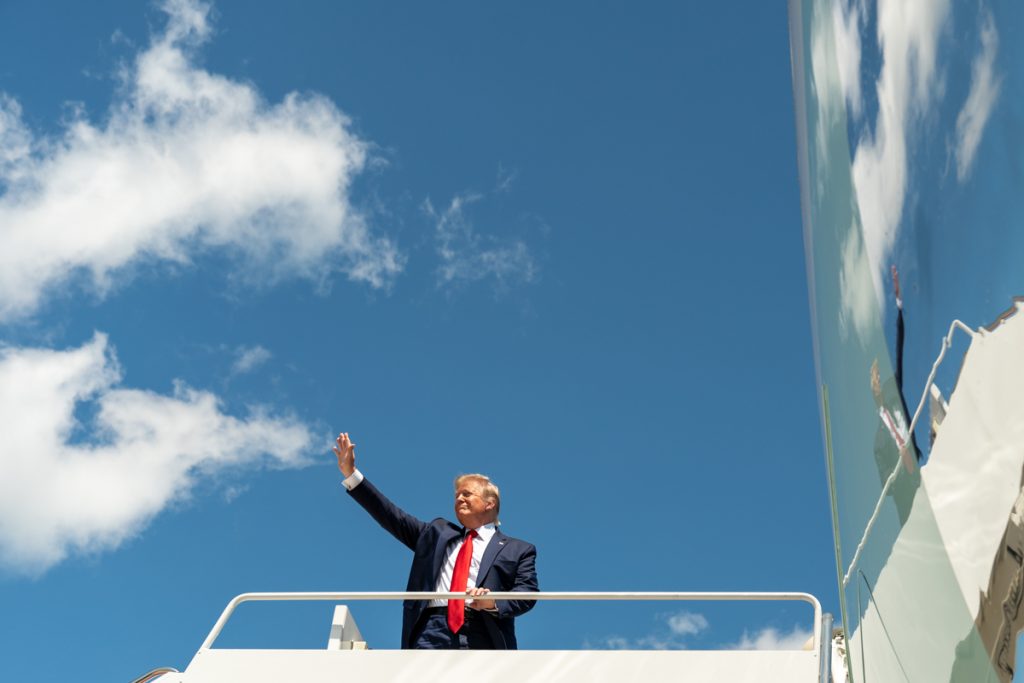
When President Trump becomes citizen Trump, possibly as soon as January 20, 2021, Manhattan District Attorney, Cyrus Vance Jr., is expected to charge Donald J. Trump with tax fraud.
The New York Times reported on Monday that Vance has subpoenaed Trump’s accountants, Mazars USA, for eight years of personal and corporate tax returns.
Mazars says it will fully cooperate with investigators.
Trump fought back on Thursday morning, filing a sealed complaint, Trump v. Vance, in the Southern District of New York against both Vance and Mazars.
Meanwhile, last week, The Second Circuit Court of Appeals in Manhattan sued the President for emolument clause violations.
The emoluments clause of the Constitution involves profiting from the office of the Presidency, which Trump allegedly is doing to enrich his 500 business interests at the Trump Organization, including Trump Tower in New York City, Trump International Hotel in Washington, D.C., Trump’s golf courses, and his other real-estate and licensing businesses.
Trump expressly refused to separate himself from his business interests after he won the Presidential election, instead retaining ownership and leaving the operational organization to his sons, Donald, Jr., and Eric.
Stormy Daniels and Karen McDougal
Vance is zeroing in on the $130,000 hush-money payment former Trump lawyer, Michael Cohen, paid to porn star Stormy Daniels and the $150,000 American Media Empire Inc., parent of the National Enquirer, paid Playboy model, Karen McDougal known as a “catch-and-kill” scheme to to help Donald Trump become President.
However, Vance’s probe appears to be more extensive than the alleged one-nighter Trump spent with Daniels, or his ongoing rendezvous with McDougal, as Trump’s accountants were subpoenaed for eight years of personal and corporate returns.
Trump denies both affairs and any wrongdoing, while his former lawyer, Michael Cohen–who delivered the hush-money–is serving a three-year Federal prison term for crimes involving campaign-finance laws.
Cohen pleaded guilty to eight charges in August, 2018, including allegations that the payments violated campaign finance laws and unrelated charges that he lied to banks to obtain improper loans and lied to the government to avoid paying taxes.
In New York, filing a false business record to conceal tax fraud is a felony.
The tax returns obtained in this lawsuit will not be made public unless they are used as evidence in a criminal case once Trump leaves the Oval Office.
Second Circuit Revives Emoluments Suit
On September 13, a three-judge panel of the Second Circuit Court of Appeals in Manhattan voted 2-1 to toss out a district court ruling, and revive an emoluments court suit, Citizens for Responsibility and Ethics in Washington v. Trump.
“Barring a contrary ruling from the full Second Circuit or emergency intervention by the Supreme Court, the case will soon move forward–and Mr. Trump’s finances and potential conflicts of interest could be thrust into the spotlight,” The Economist notes.
Reading the Second Circuit majority opinion, Judge Pierre Leval, wrote, “[w]e conclude that the district court did not apply the law correctly in finding that it lacked jurisdiction to decide the case,”
“The facts in the case, together with those acknowledged by the President, support the inference that the revenues of the Trump establishments are substantially (or are convertible into) personal revenues of the President.”
The opinion is contrary to a U.S. Court of Appeals for the Fourth Circuit ruling that threw out the first emoluments clause lawsuit against Trump brought by the state of Maryland and D.C., in June, 2018, stating the lawsuit was “politically motivated.”
Leval wrote that “whether a lawsuit has political motivations is irrelevant to the standing issue.”
Leval also rejected the contention that Congress, not the courts, must address emoluments cases.
“The Federal courts have the responsibility to resolve cases and controversies arising under the Constitution and laws of the United States. That responsibility entails finding the facts and interpreting the Constitution and laws,” the opinion reads.
In his dissent, Judge John Walker wrote that he would have upheld the district court’s finding that the groups lacked standing to bring forward the claims.



Leave a Comment